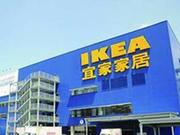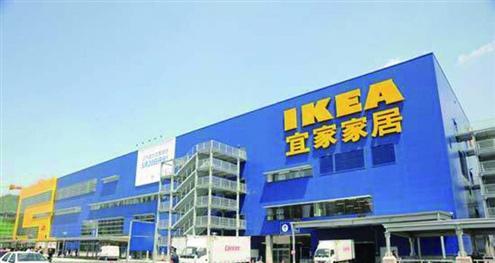IKEA's China manufacturers face tough times

 0 Comment(s)
0 Comment(s) Print
Print E-mail CNTV, February 20, 2013
E-mail CNTV, February 20, 2013
Last year, dozens of Chinese original equipment manufacturers, or OEMs, for Swedish furniture retailer IKEA halted its business cooperation with the company due to low contract prices.
An OEM manufactures parts or entire products which are then bought by another company and sold under that company's name, in this case IKEA's name. As business with IKEA stopped, many Chinese OEMs are now eagerly looking for new markets to tap in order to continue their operations.
 |
|
Last year, dozens of Chinese original equipment manufacturers, or OEMs, for Swedish furniture retailer IKEA halted its business cooperation with the company due to low contract prices. |
Joyme is not a familiar brand name for Chinese furniture buyers. But PREVIOUSLY it made products for the largest furniture retailer in the world -- Swedish giant IKEA. Last year, Joyme severed the relationship after a dismal year of falling profits making furniture for IKEA.
But life AFTER IKEA has been much less rosy. Fewer orders, fixed costs of running a factory and rising wages are seriously squeezing margins and is forcing many Chinese OEMs to scramble for business elsewhere.
One strategy, is to boost their online presence. Joyme started their online business on T-mall, one of the biggest e-commerce platforms in China. In their first month of doing business online, Joyme saw revenues of 2 million yuan or over 300,000 U.S. dollars.
Cao Yuewei, Chairman of the board of Heilongjiang Naili Wood Company, said, "We chose to generate more business online because that will significantly lower our costs. Being online also allows more people to find out about our products and of course, e-commerce is skyrocketing in China."
As a previous supplier to IKEA, Joyme is faced with the question of copying IKEA products as it sells its own. Joyme says, there may be some similarities in the beginning, but made clear it will have its own distinct style soon. IKEA also knocked down the concerns saying it was confident of its consumer loyalty.
Not only are IKEA's China OEMs facing diminishing profits...but the ENTIRE original equipment manufacturing industry is facing the problem of "high-costs and low-prices." How to adapt to these changes is a critical question to ponder for many Chinese OEM's who wish to continue their operations.





